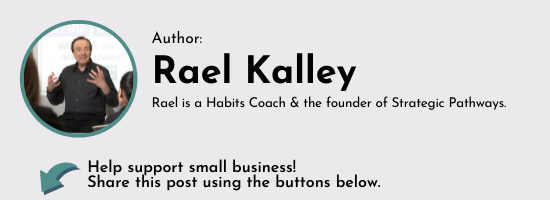Is Asking For Help a Strength or a Weakness?
She sat across the table and as I listened to her story, I felt her pain as acutely as if it was mine.
She told me that much of her childhood had been consumed by overwhelming feelings of sadness and despair. She could neither explain nor understand why this was happening to her. Sadly, her attempts at seeking help from her parents were met by dismissive refrains: “It’s nothing, it will pass,” “Stop acting like a baby,” “You’ll grow out of it,” “I can’t deal with this right now,” and both her and my least favorite, “Suck it up.”
When it all became too much for her and the tears began to flow, the most frequent responses were “Stop being a drama queen” or “You have to always be the centre of attention, don’t you?”
The only solace she could find was in food, specifically junk food. Food became her only friend. It did not judge her or criticize her in any way and it was always there. Soon food was only thing that brought peace and comfort into her being.
As she entered her teens she began to feel more isolated, more alone and spent most recess periods finding something to occupy her time rather than interacting with their classmates. Hearing their bullying and disparaging comments about her ever-increasing size became her living hell.
She did not go to her grad party as she did not have a date and, as she sat across from me she confided that she still, at age 40, has yet to be asked out on a date.
She completed an undergrad degree and has worked ever since. She has built for herself a life of solitude and her main source of human contact is her brief daily interactions with her work colleagues.
Even at work she feels isolated. Most days she eats lunch alone, stays indoors by herself evenings and weekends only to stray out for essentials like grocery shopping.
On two occasions she has sought help – once from a friend and once from a therapist – and in both cases, she was told it was all in her head and she needed to deal with it.
The most painful moment in her story was when she confided that she considered herself an abject failure and that she had even failed at her recent suicide attempt.
Today, at 365 pounds, she feels helpless and has convinced herself that her life can never get better.
And she’s afraid to ask for help only to be told, yet again, that she is weak.
I am not a therapist, counsellor or psychologist, I am simply a coach. I talk with people all day, every day and whenever I hear these stories, I encourage the storyteller to seek outside professional counselling.
This lovely lady has convinced herself that seeking help is an admission of failure and she really didn’t want to ask for help again.
Her story touched me. Seeing how much pain she was in tugged at my heartstrings in a way that I knew I had to help in any way I can.
What Asking for Help Truly Takes
The best way I knew how to do that was to convince – implore her really – that asking for help is not weakness but rather, an act of extreme courage.
Reaching out for help is a signal we acknowledge a problem and want to begin the healing process.
We talked for some time and she left with the promise of making an appointment with a psychologist I know.
And she also promised to come back soon, so we can chat more.
We have all felt pain at times, and as devastating as it seems, nothing kills pain faster than a fellow human reaching out a hand to help.
To know that someone cares is to know you are worthy. The real gift is when our sense of self-worth grows, our resourcefulness to deal with adversity grows with it.
When we see someone in pain, please don’t judge them, instead, reach out and offer to help even if the only help you are able to provide is to listen.
I have her permission to write this blog and the perfect way to end it is withs the sage words of Theodore Roosevelt, “No one cares how much you know, until they know how much you care.”
Till we read again.


